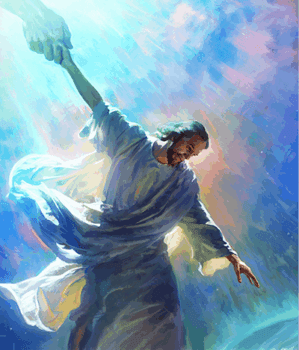God First: Your Daily Prayer Meeting #1250
Bible verse of the day: Psalm 86:7 – "When I am in distress, I call to you, because you answer me." Welcome to our Daily Prayer Meeting! This is a safe space where you are seen, heard, and prayed for. Start your day in God's presence—every day at 8AM ET, we share a short devotional from God's Word and lift your prayer requests to Him. You're not alone! Our prayer team is here to intercede with you and for you. Whether you need prayer, celebrate a breakthrough, or start your day with Jesus, you're in the right place. Share your prayer requests or testimonies of praise here: https://wkf.ms/3DBuapQ Engage with us in the comments:
• How can we pray for you today?
• Where are you watching from?
• What are you thankful for? How has God answered your prayers?
Let’s grow together in faith, hope, and love—one prayer at a time. Don’t forget to subscribe and turn on notifications so you never miss a prayer. 🔔 Share this video with someone who needs hope or tag a loved one who needs encouragement today. Today’s Message: Pr Peter Horvath The Seventh-day Adventist Church has been an established denomination since 1863. It is a global Christian family with over 21 million members who hold the Bible as the ultimate authority. We are believers committed to helping people understand the Bible to find freedom, healing, and hope in Jesus. Want to learn more about the Seventh-day Adventist Church? Visit our website at: https://www.adventist.org/ Find us on social media by following the links below:
Facebook:
https://www.facebook.com/theadventistchurch
Instagram:
https://www.instagram.com/adventistchurch
Twitter/X: https://twitter.com/adventistchurch 👉 Want more prayer moments?
Watch our full playlist of daily prayer videos here: https://youtube.com/playlist?list=PL-k2Gb-DBYo–V8axD7iFUL6TFEckrhxv&si=vIljgfwrSZN6iJR2 God First, Daily Prayer, Prayer Meeting, Christian Prayer, Morning Devotional, Hope In Jesus, Bible Verse Of The Day, Prayer Request, Faith Community, Seventh Day Adventist Source: https://www.youtube.com/watch?v=U0JcNq8GQlY
4: Unity Through Humility — Singing with Inspiration
The great lesson we learn from dear Paul this quarter is that we are to
Stand Up! Stand Up For Jesus! – Hymn 618. This is a beautiful theme hymn that gives us a great reminder of what we need in our world, which is falling apart these days.
The Sabbath afternoon introduction to this week’s study time encourages us “how we can grow to be more like Him” as does 
Hymn 245 – More About Jesus.
With all the Disunity in Philippi (Sunday) we are taught about
Love Divine – Hymn 191 and
God’s Free Mercy Streameth – Hymn 110.
Monday gives us more clues as The Source of Unity, with Paul providing a picture of humility for us, as is sung in
Hymn 406 – Love Consecrates The Humblest Act.
The Holy Spirit is a large source of so many things to help us with unity:
Holy Spirit, Light Divine – Hymn 268 and we can ask for more help from the Holy Spirit in
Hymn 269 – Come, Holy Spirit.
The greatest example to follow in all we are learning this week comes for our Lord Jesus:
Hymn 577 – In The Heart Of Jesus all because He “died on the cross in order to be our Redeemer”:
Hymn 402 – By Christ Redeemed.
Please continue to search the scriptures this week to be blessed, and to bless others.
To learn unknown hymns, you will find the accompaniment music for each one at: https://sdahymnals.com/Hymnal/
Another great resource is for when there is a hymn you wish to sing but can’t find it in your hymnal. Go to https://www.sdahymnal.org/
2 Timothy 2:15 KJV – “Study to shew thyself approved unto God, a workman that needeth not to be ashamed, rightly dividing the word of truth.”
4: Unity Through Humility — Teaching Plan
Key Thought: The origin of disunity stemmed from the pride and thirst for position and power. Unity through humility is a strength.
January 24, 2026
1. Have a volunteer read Philippians 2:3,4.
- Ask class members to share a short thought on what the most important point is in this passage.
- What practical steps does Paul urge to have unity in the church?
- Personal Application: What kind of death to self would lead us to esteem others better than ourselves? How different would our relationships be if we all
 lived like that? Share your thoughts.
lived like that? Share your thoughts. - Case Study: One of your relatives states, “What challenges to unity does the church in your area face? Would a willingness to be humble and not do anything through selfishness, ambition, or conceit help the issues? How would you respond to your relative?
2. Have a volunteer read Philippians 2:5.
- Ask class members to share a thought on what the most important point in this text is.
- What does it mean to have the mind of Christ?
- Personal Application: Why is it important to keep our minds focused on pure and virtuous things in our Christian walk? Share your thoughts.
- Case Study: One of your relatives states, “What are the ways that you have experienced the reality of God’s love?.” How would you respond to your relative?
3. Have a volunteer read Philippians 2:5-8.
- Ask class members to share a short thought on what the most important point in this text is.
- What are the implications of these words?
- Personal Application: How should we respond to what Christ has done for us? Share your thoughts.
- Case Study: One of your friends states, “Why is it wrong to think that our works can add to what Christ has already done for us? What do our good works mean then?” How would you respond to your friend?
4. Have a volunteer read Romans 9:3, Hebrews 2:14-18; Hebrews 4:15.
- Ask class members to share a thought on what the most important point in this text is.
- What characterised Jesus condensation and His taking of human nature?
- Personal Application: How should focusing on what Jesus did for us at the cross make us more humble and submissive to God? Share your thoughts.
- Case Study: Think of one person who needs to hear a message from this week’s lesson. Tell the class what you plan to do this week to share with them.
(Truth that is not lived, that is not imparted, loses its life-giving power, its healing virtue. Its blessings can be retained only as it is shared. ”Ministry of Healing, p. 148).
20240127 02
20240127 01
20240120 02
Non sei solo! #drittoalcuore
Una frase può cambiare la tua giornata.
Ascolta cosa dice Gesù a chi si sente messo da parte. 📖 “Io sono con voi tutti i giorni”, (Matteo 28:20). Anche nei momenti di solitudine, la sua presenza ti dà forza. Source: https://www.youtube.com/shorts/os9vN-xVses
20231021 03
20231021 02
- « Previous Page
- 1
- …
- 48
- 49
- 50
- 51
- 52
- …
- 4846
- Next Page »

